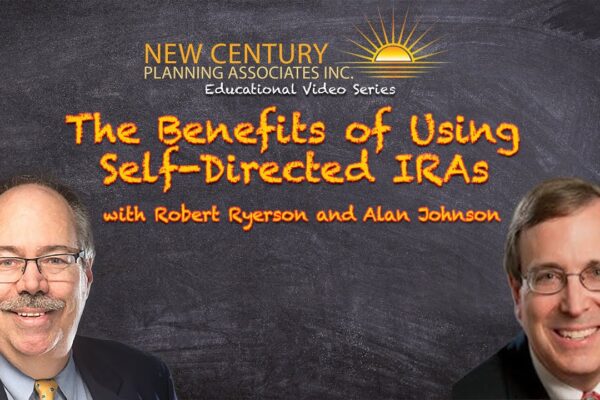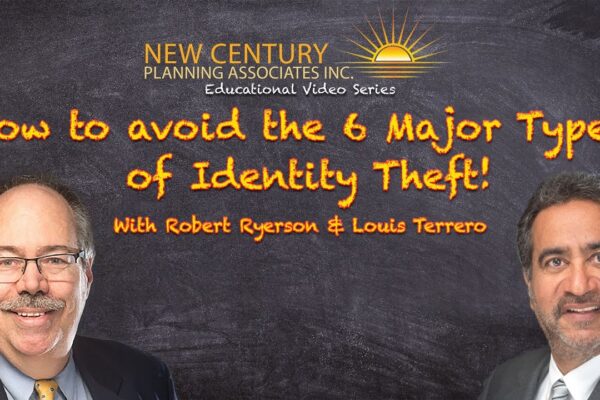10 Great Tips for Planning for Retirement
Retirement doesn’t just happen. It requires careful planning and commitment to make sure you have the financial stability needed to support yourself into your golden years.
If you’re thinking about retirement, there are a few things you’ll need to keep in mind. Here are 10 important tips for planning for retirement.
1. Start Investing Early
When it comes to retirement planning, one of the most important things you can do is to start investing early. The sooner you start saving money and investing in retirement accounts, the better. That’s due to the power of saving over time— you’ll be able to accumulate more wealth over time if you stay at it through thick and thin.
For example, let’s say you start investing $200 a month for 10 years. Assuming that you receive the average return of 8 percent in the stock market, you’ll have saved roughly $37,000. Even more impressive—if a 30-year-old saves $6,000 per year in a ROTH IRA, and earns an average of 6.5%/year all the way to age 67 ( “full retirement age”), they would have accumulated $856,000 tax-free dollars. If additional dollars were saved in a 401k or ROTH 401k plan along the way, you can see that the saver can come into retirement in strong shape, without needing to realize “superior” or high returns.
2. Think Small
Another thing that can help you build wealth is compound interest, small amounts of interest that build up over time. Compound interest can be a great way to save money for retirement.
Even though it’s just a small amount, compound interest adds up over time. That can make a big difference in your golden years. Einstein called compound interest the eighth wonder of the world!
 3. Make a Retirement Budget
3. Make a Retirement Budget
Many people don’t know how much money they need for retirement. Try calculating your personal savings goals to figure out how much you’ll need in retirement.
To do so, consider a few factors such as:
- Age of retirement
- Life expectancy
- Projected retirement lifestyle ( could include more travel and leisure)
- Current spending habits
- Current saving habits
Make a rough estimate of how much you’ll spend in each category. This should help give you an idea of what to budget for your retirement years.
4. Plan, Prioritize, Protect
It’s easy to become overwhelmed when thinking about saving for retirement. To help make things less anxiety inducing, you might want to use the plan, protect, and prioritize method.
Here’s the basic rundown of how this method works:
- Plan: Experts suggest saving 15 percent of your annual income.
- Prioritize: Cut expenses or increase your income as you prioritize retirement savings.
- Protect: Have an emergency fund to cover unexpected expenses so you don’t have to touch your retirement savings.
By following this method, you make it easier to put aside money for retirement.
 5. Enroll in Your Employer’s Retirement Program
5. Enroll in Your Employer’s Retirement Program
It’s common for employers to offer retirement savings plans as part of a benefits package. Many times, these plans will match a percentage of the funds you save. You can think of these “matching funds” from the employer as free money. For example, if your employer will match 50% of the first 6% of your salary that you contribute to the plan, that is a 50% return on your money every year—don’t miss this free money!
If you’re not already enrolled in your employer’s retirement program, you may want to do so. This can be a great way to set aside additional cash for retirement.
6. Get Professional Financial Help
No matter how much you save on your own, the experts always know better. Financial experts have a deep knowledge of how to manage savings to help get you the cash you need for retirement.
Try speaking to a financial expert to get a good look at your savings. They can help you better manage your funds and avoid future problems as you plan for retirement.
7. Be Aware of Inflation
Many people plan for retirement based on the earnings they have right now. However, you need to remember that inflation can alter prices and earnings in the future.
When you plan for retirement, remember to prepare for inflation. Be aware of the fact that inflation will make things more expensive over time, and plan accordingly. A financial professional can help you address the loss of purchasing power over time from inflation.
 8. Get Out of Debt
8. Get Out of Debt
Getting out of debt is one of the most important things you can do when it comes to planning for retirement. Being debt-free means you don’t need as much money every month to meet your needs.
And, when you have no debt, you can start using the money you were using to pay off loans and credit cards to save for retirement instead. Plus, you won’t have to worry about these expenses once you are no longer earning employment income.
9. Earn Passive Income
Another great way to start saving for retirement is to look for ways to earn passive income. This helps increase your cash flow and provides you with an extra financial cushion for retirement.
There are many different ways that you can earn passive income, including:
- Peer-to-peer lending
- Investing
- Rental property income
With these income streams, you can help supplement your savings when money is running low.
10. Live Below Your Means
Unfortunately, many people run out of money once they retire. This can force them to return to the workforce to supplement their income.
One way to avoid this is to practice living below your means. In other words, try to save money wherever you can and avoid living paycheck to paycheck.
Getting into this habit helps free up more income to put into your retirement fund. You’ll thank yourself later.
Start Planning for Retirement
With these tips, you’ve got the tools you need to start planning for retirement early. That way, you can ensure that your golden years are full of the financial freedom you’ve always dreamed about.
Author
Robert Ryerson
Although Robert M. Ryerson completed all the necessary requirements to earn bachelor of arts degrees in both English and economics at Rutgers University, college policy at the time prohibited the issuance of dual degrees. As a result, he graduated from Rutgers with a single bachelor of arts in economics before finding employment as a stockbroker with Shearson Lehman American Express in New York City 1984. Robert M. Ryerson has since established himself as a respected estate administrator and legacy planner. In addition to his economics degree from Rutgers, Mr. Ryerson holds several professional designations including Retirement Income Certified Professional (RICP)®; Certified In Long Term Care (CLTC)®; Certified Financial Fiduciary (CFF)®, and Certified Identity Theft Risk Magenament Specialist (CITRMS)®. He has shared his knowledge on the subject of identity theft as the author of the book What’s The Deal With Identity Theft?: A Plain-English Look at Our Fastest Growing Crime. He has also covered identity theft issues directly for students as the instructor of the adult education course Understanding Identity Theft: Our Fastest Growing Crime.






